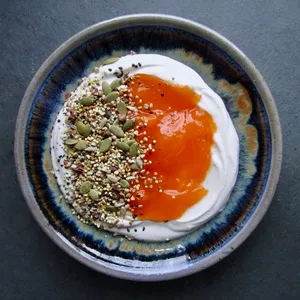Like me, I’m sure you have vivid memories of the rubbish your mom tried to put on your childhood cuts and scrapes to disinfect them. Neosporin? Ok. Hydrogen Peroxide? Noooo thank youuuu. Moms do this because of their concern about infection — open wounds (no matter how small), can be infected by bacteria, fungi, and viruses.
These infections are most often caused by species of Staphylococcus (staph) or Streptococcus (strep), two common types of bacteria. They can also be caused by antibiotic-resistant bacteria such as Methicillin Resistant Staphylococcus aureus (MRSA).
While topical treatments are effective, we, as college students, may not be as prepared as our mothers are with their full cabinet of medical supplies. I’m lucky if I can track down a bandaid when I need it. As a foodie, however, my kitchen is fairly well-stocked. This being said, here is a list of common foods that can effectively kill infection-causing microorganisms.
1. Onion
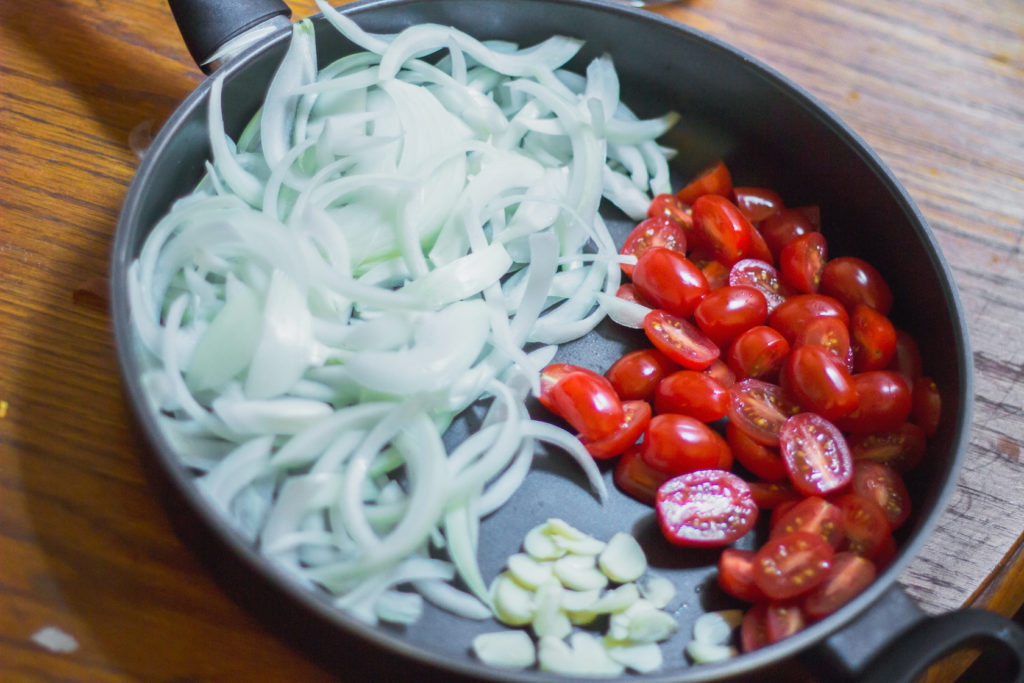
Photo by Abigail Wang
A salve made of garlic, onions, wine, and bile from a cow’s stomach was recently created from a 1,000 year-old recipe at the University of Nottingham. It was able to wipe out 90% of the antibiotic-resistant MRSA bacteria. It is believed that the sulfur compounds in garlic and onions have antibiotic properties. To use, make a paste of raw onion, apply to the infected area, and leave on no longer than an hour.
2. Garlic
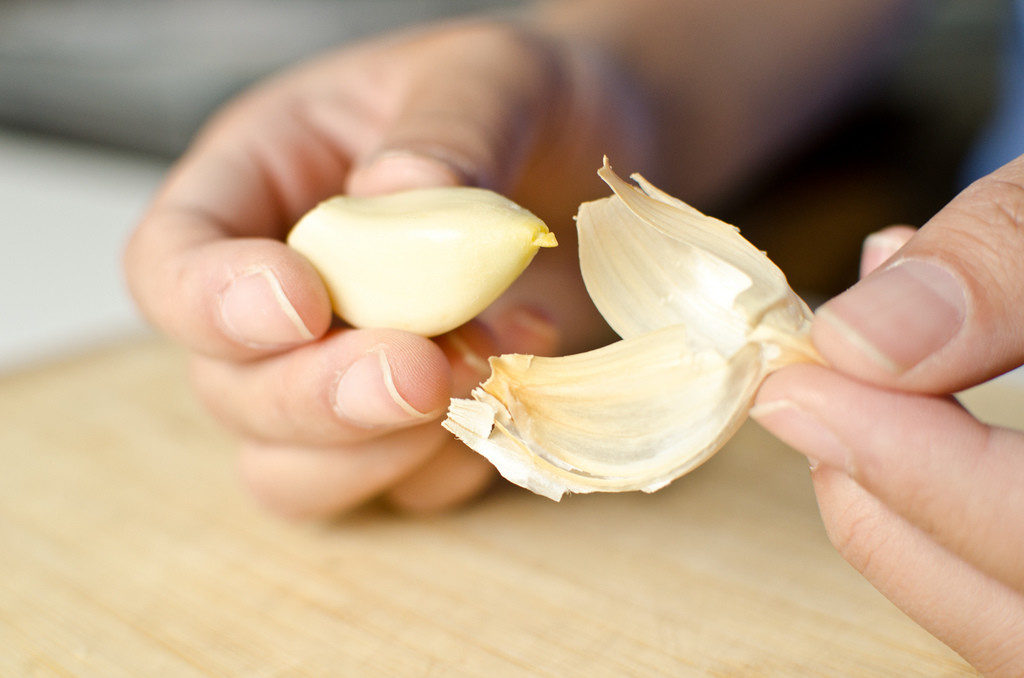
Photo by Kai Huang
Along with being antibacterial, garlic is said to be anti-fungal, able to cure yeast infections and even combat viruses. Garlic was used as an antiseptic during the Civil War, along with onions, which were used to treat gunshot wounds. Mix raw garlic juice with water to dilute it before applying topically — it can burn!
3. Ginger
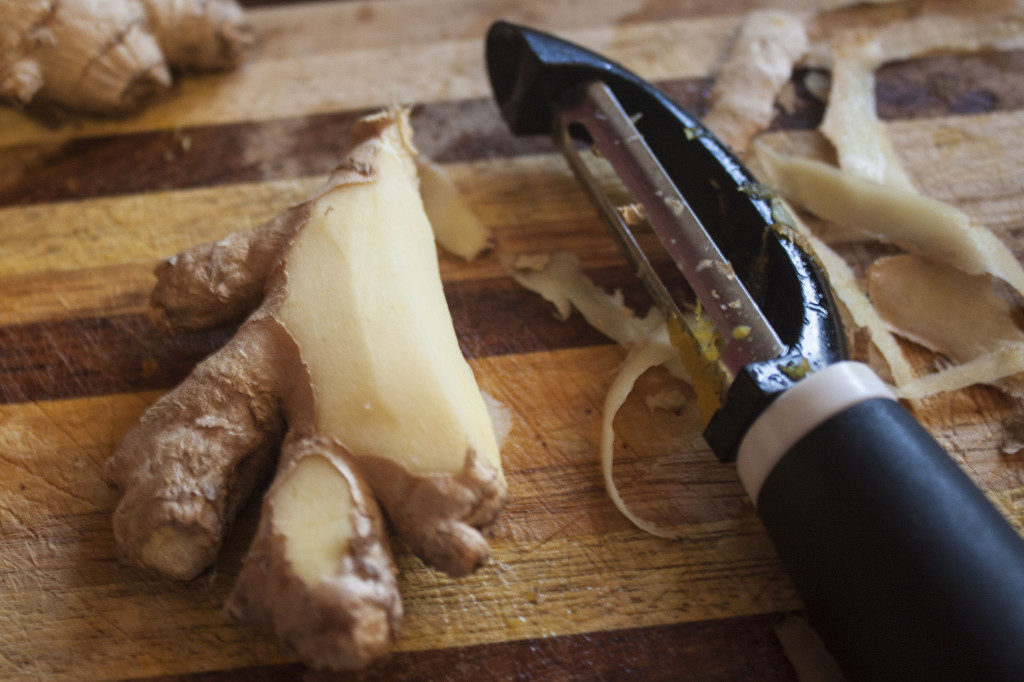
Photo by Savannah Carter
Ginger has powerful antimicrobial properties that come in handy when you have an infected cut. Sprinkle it on in powder form or rub the affected area with a fresh slice.
4. Turmeric
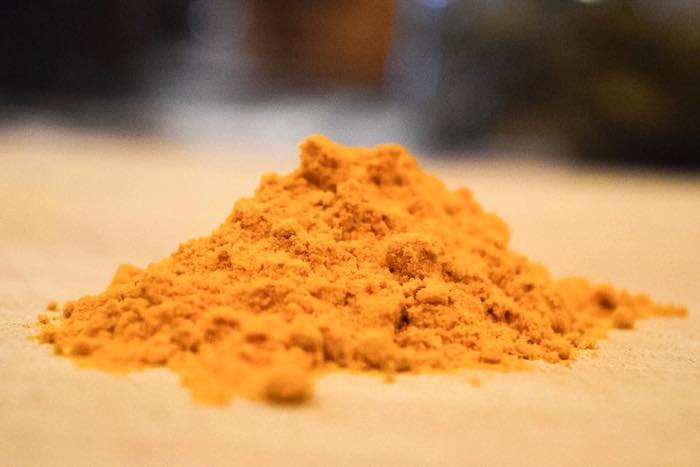
Photo by Sarina Raman
Curcumin, an active component of turmeric, has been found to have major antibacterial, antiviral, and antifungal properties. Fresh slices of turmeric or turmeric powder, applied to a wound, should do that trick.
5. Raw Honey
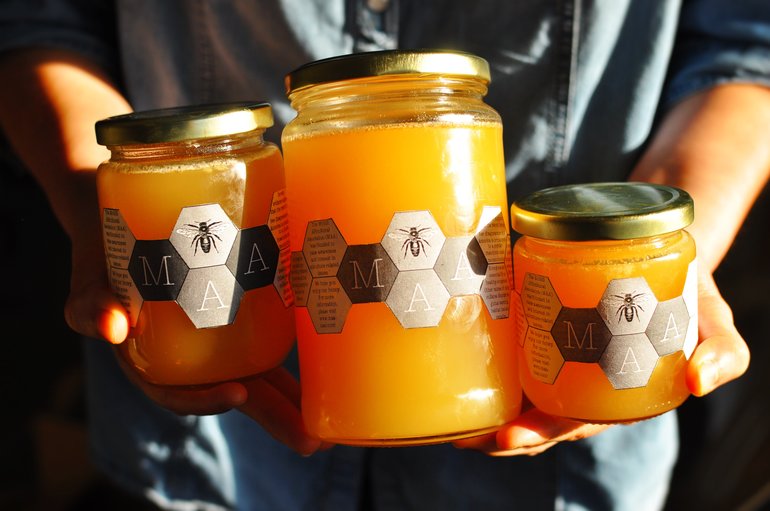
Photo by Nadia Alayoubi
Honey contains an antimicrobial enzyme which releases hydrogen peroxide and prevents the growth of certain bacteria. To treat a wound, apply honey and leave on for about half an hour.
6. Lemon Juice
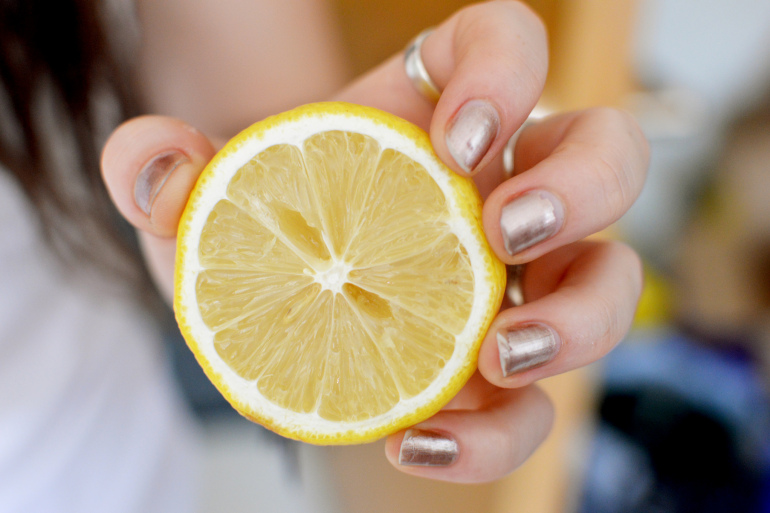
Photo by Rebecca Black
As you may well know, lemon juice stings like a mother when you get it in a cut. If you can stand that pain, however, it can effectively clean out your minor wounds.
7. Cinnamon
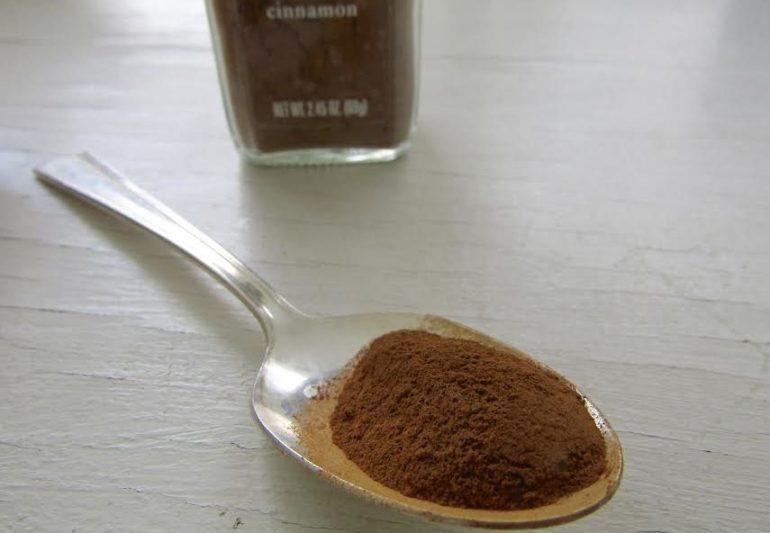
Photo by Rose Gerber
Although cinnamon can irritate skin, especially when applied topically in large doses, it has strong antimicrobial properties and can be used to disinfect a wound in a pinch (literally).
8. Black Pepper
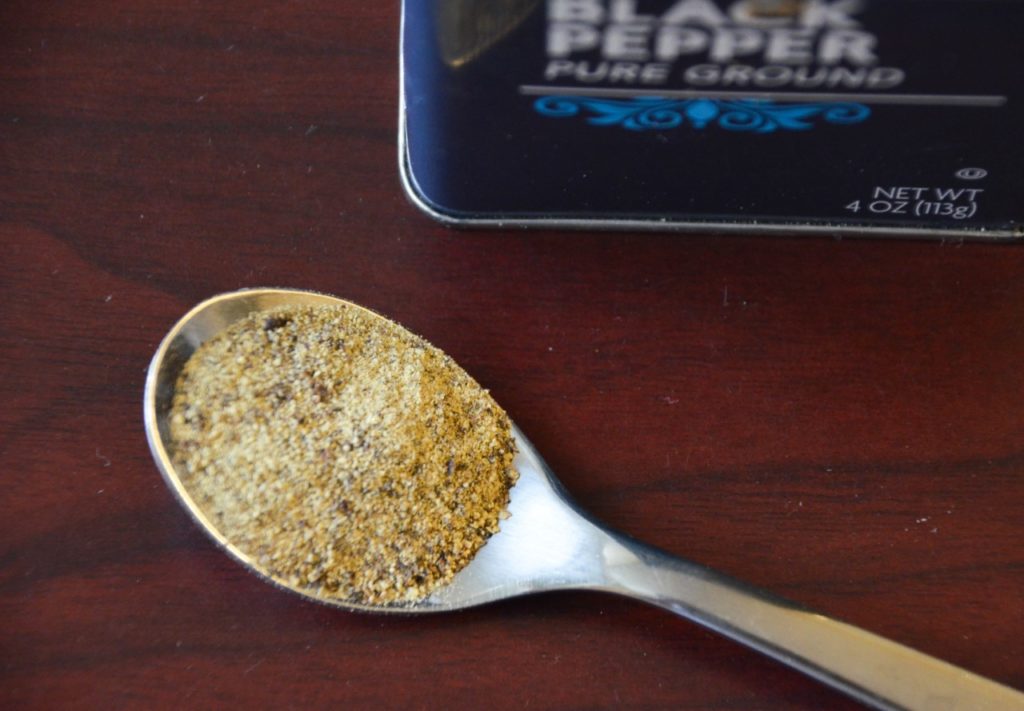
Photo by Jocelyn Hsu
Along with having antibacterial properties, black pepper is supposedly a coagulant. To use, simply pour finely ground black pepper onto your wound and apply pressure — this should quickly stop bleeding.
9. Cayenne Pepper
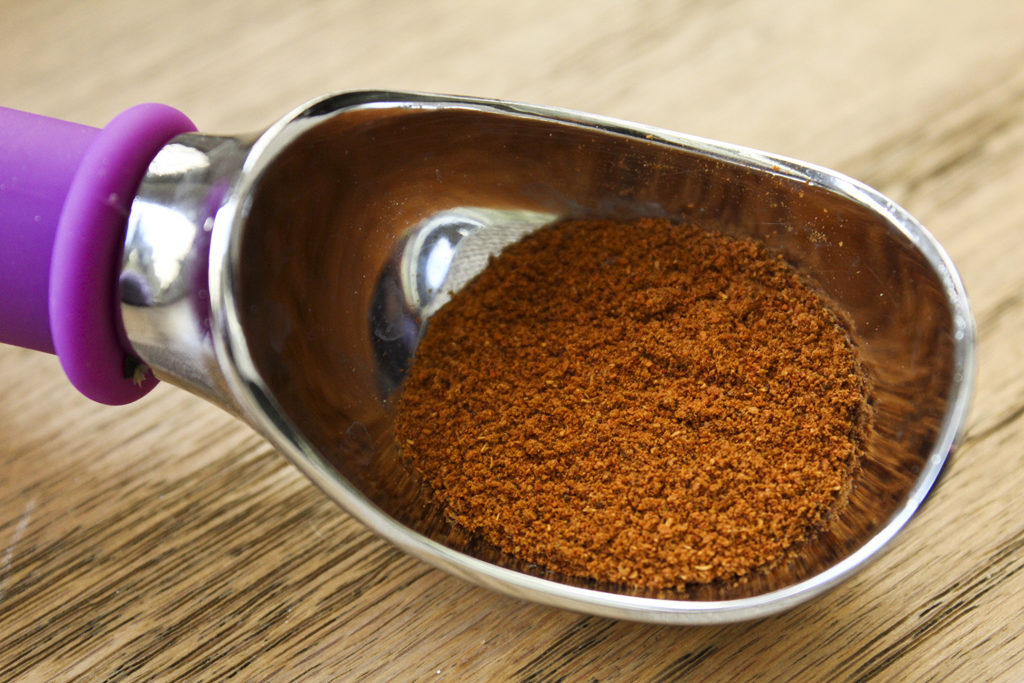
Photo by Hannah Lin
Similar to black pepper, cayenne will disinfect a cut and stop bleeding. Some even claim that, when mixed with water and drunk, cayenne can stop internal bleeding. Contrary to what you may assume, it reportedly does not sting or burn when applied.
10. Wine

Photo by Mikaela Kearns
The ultimate college antiseptic, wine has been used to clean wounds since Bible times. If you find yourself in a bind with nothing but a bottle of red, pour it straight on a wound to disinfect.
11. Olive Oil
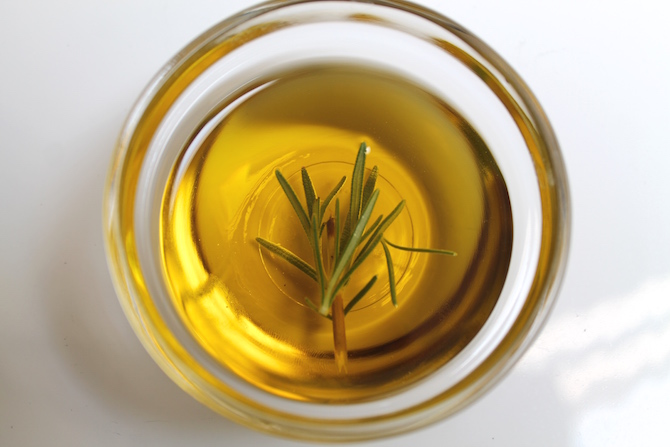
Photo by Jessica Kelly
Olive oil has been found to kill even strands of bacteria that are resistant to conventional antibiotics. Use good-quality oil and pour or rub it on the affected area.
A note: there are a number of supposed “natural disinfectants” floating around the internet that I could find no substantial evidence for. These include: vinegar, coconut oil, raw potatoes, and fermented vegetables. I occasionally came across studies providing evidence that extracts of these foods killed microorganisms; however, there was no evidence that the food itself effectively killed the microorganisms in question.


